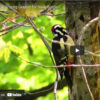
Many of us are attempting to cope with the COVID 19 pandemic as it moves into its year-two existence and third-wave status. Vaccines are more readily available for those who want to receive them.
Travel restrictions and other required adjustments are a lifestyle pain. For the purpose of assisting to negate the community spread of this deadly viral stalker I am willing to do what I am able. When we compare our “living hardships” with other countries such as India or Brazil, what we are being instructed to do is to be envied by millions of others.
I acknowledge that these turbulent times are causing many individuals to have greater periods of anxiety with more demands being placed upon their coping techniques. The simplified reality is that, like in other life-altering occurrences, we too shall pass through this one. Hopefully we will learn from it and are better prepared for whenever another of the being-alive events comes our way.
I hear people lamenting for a return to what was normal living in the post-COVID 19 world and their desires to get past this pandemic so we can move into our new normal. It is frustrating for many that we are 14 months into this pandemic and its end still eludes us.
It has been gratifying that I have enjoyed the past winter without catching my annual cold. The now-common safety measures being enacted by many and an awareness of my proximity to others have not bothered me one iota as measures to protect our health. It is my hope that the “new normals” being established will continue to enhance a widespread compassion for our mutual wellness.
One of my personal adaptation techniques for these times of COVID 19 and those other normal stressors of living is to seek experts’ scientific research regarding the harmful effects of prolonged or uncontrolled stresses affecting our bodies and minds. Our public libraries have been a blessing for their resources to quench my desire to be factually informed.
My “normal” involves reading thus Gabor Mate’s When The Body Says No: Understanding The Stress-Disease Connection provided me with extensive details regarding how “chronic emotional stresses sensitize the immune system.” When our autoimmune systems become reactive to “triggers” those catalysts will prompt our bodies to combat what it perceives as threatening. Those reactions could possibly result in ailments that have severe negative impacts on our bodies and tragically for our lives. I ponder how the stressors activated by this pandemic are impacting the components for our health.
Having some anxiety is part of being alive; the challenge is to control the amounts and deal with them positively. With each of us being unique individuals, we must adapt to suit what works for us. As the adage states, “When you have lemons, make lemonade”; therefore, now is an ideal time to make our lemonade in the form of a potential resurrection of a past activity, the development of a new skill or with the pursuit of a long-delayed interest.
Ray Bates, Guysborough (Sedabooktook: harbour running far back), a former school principal and Nova Scotia Community College Truro Campus faculty member (Ret’d), has been contributing his opinions to newspapers since 1998. raybates@eastlink.ca
Check out our new community calendar!
With a special thanks to our generous donors who make publication of the Nova Scotia Advocate possible.
Subscribe to the Nova Scotia Advocate weekly digest and never miss an article again. It’s free!



